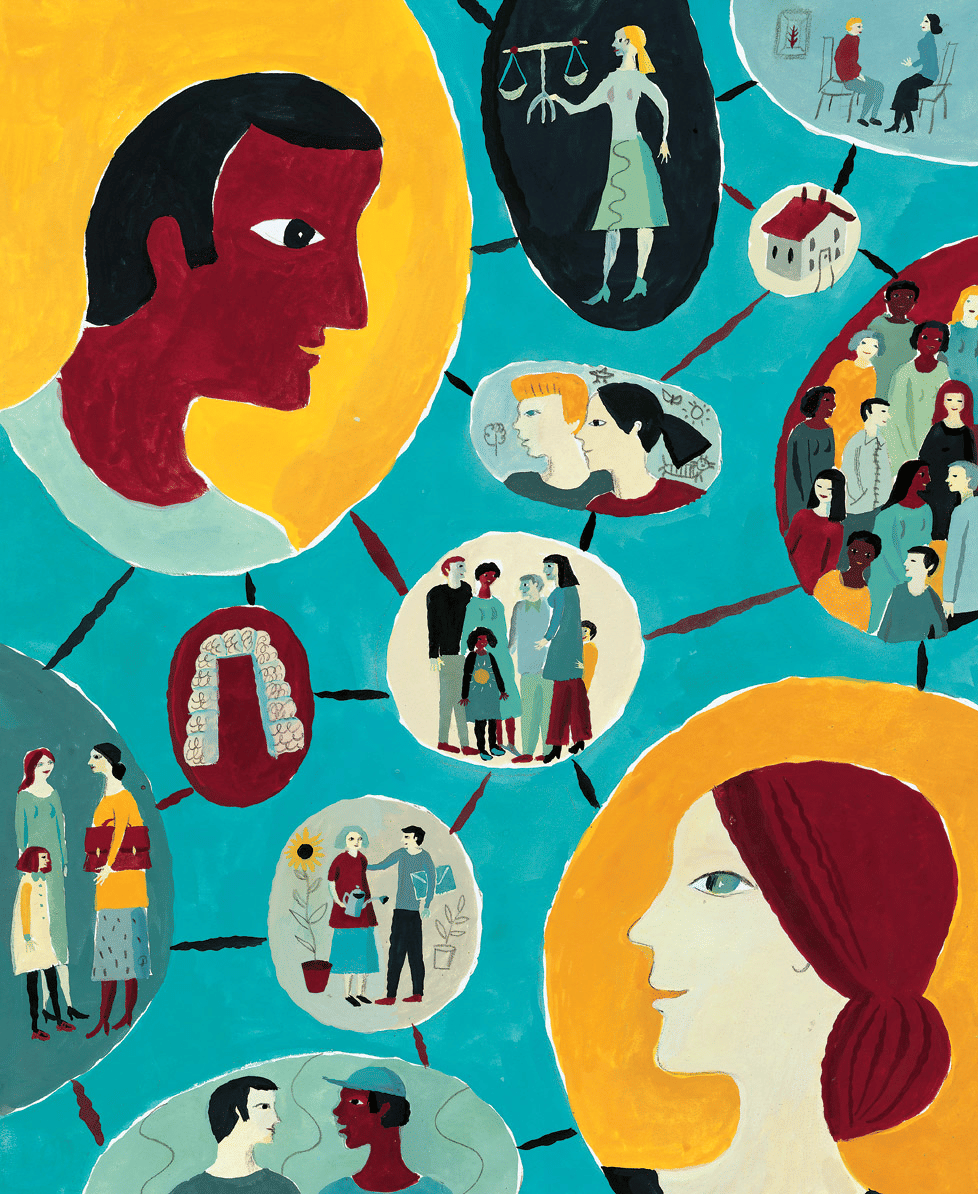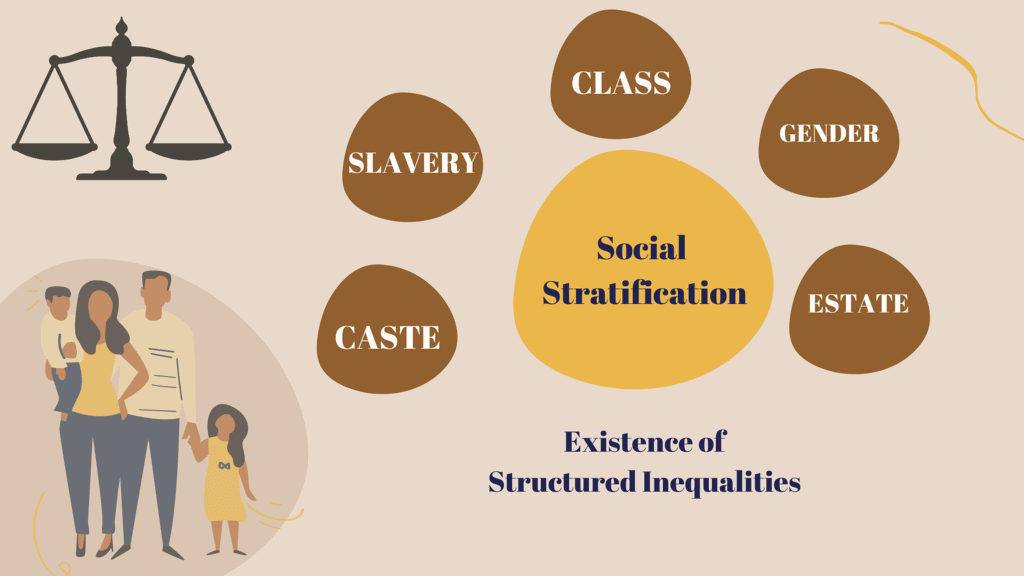NCERT Solutions for Class 11 Sociology - Terms, Concepts and their Use in Sociology
Q1: Why do we need to use special terms and concepts in sociology?
Ans:
- We need to use special terms and concepts in sociology to understand the society better. In sociology, there are different ways of understanding the society. For example, Max Weber gave importance to individuals for existence of a society whereas Emile Durkheim laid emphasis on society as a whole. For Karl Marx, the key concepts were class and conflict to understand society whereas for Emile Durkheim, social solidarity and collective conscience were important.
- There are different kinds of individuals and groups in society that leads to different concepts and ideas. Therefore, we need special terms and concepts in sociology to differentiate it from our common sense knowledge of society.
- As a social science, sociology does need to have certain agreed upon meanings of social realities and processes in studying. Each subject is required to have a standard vocabulary, terminology, language and concepts through which professionals can converse and maintain the different identity of its subject.
- It becomes all the more important to discuss sociological terms so as to distinguish what they mean from commonsensical usage which may have varied meanings and connotations.
- An individual studies the society on the basis of his/her own common sense, which is often within a limited range, while sociology provides specific concepts and terms to study the structure, phenomenon and functions of the society in a scientific way.

Q2: As a member of society you must be interacting with and in different groups. How do you see these groups from a sociological perspective?
Ans:
- Social group refers to the members or individuals defined by formal or informal criteria of membership, who share a feeling of unity or are bound together in relatively stable patterns of interaction is known as social group.
- The members of social group establish relationships on the basis of common characteristics and goals and influence each other. Social groups can be defined as an organised structure of two or more persons who interact with one another, have shared goals, are interdependent, and consider themselves as members of a group.
- Sociologists, Anthropologists and Social Psychologists categorized groups into different types:
1. Primary and Secondary Groups
- Primary groups: They are pre-existing formations which are usually given to the individual. There is face to face interaction, members have close physical proximity and they share warm emotional bonds.
- Secondary groups: They are those which the individual joins’ by choice, e.g., family, caste and religion are primary groups, whereas membership of a political party is an example of secondary group. The relationships among members are more impersonal, indirect and less frequent.
2. Formal and Informal Groups
- Formal groups: The functions of the group are stated explicitly and formally. The formation of formal groups is based on specific rules or laws and members have definite roles.
- Informal groups: They are more flexible and members have close relationship.
3. In Group – Out Group:
- In Group: It refers to one’s own group and we use the word ‘we’ for members. Persons in the In-group are generally supposed to be similar and viewed favourably and have desirable traits.
- Out Group: It refers to another group. Out-group members use the word ‘they’.
Members of this group are viewed differently and are often perceived negatively.
4. Peer Group:
- A set of individuals who, share certain common characteristics such as age, ethnicity or occupation, perceive themselves and are recognized by others as a distinct social collectivity.
- The group is seen to have its own culture, symbols, sanctions and rituals, into which the new members must be socialised according to which those who fail to comply with group norms may be ostracized.
5. Reference Group:
- The term ‘Reference group’ was coined by Herbert Hyman.
- Hyman distinguished between a membership group to which people actually belong to and a reference group which is used as a basis for comparison.
- A reference group may or may not be a membership group.
Q3: What have you observed about the stratification system existing in your society? How are individual lives affected by stratification?
Ans: Social stratification refers to the existence of structured inequalities between groups in a society, in terms of their access to materials or symbolic rewards. Historically, there have been four basic systems of stratification- slavery, caste, estate and class. In India, there are several stratifications on the basis of caste, class, gender etc. In several organisations, stratification exists on the basis of the roles of the employees. The life of the individuals is affected by stratification because people are placed in higher or lower strata. The lower strata is devoid of certain symbolic rewards and material advantages which improve the quality of the life of the recipient such as wealth, income, health, security in a job, etc. On the other hand, the higher strata enjoys all the benefits of the society. These material benefits or privileged position are also passed on to the future generations of the higher strata.

Q4: What is social control? Do you think the modes of social control in different spheres of society are different? Discuss.
Ans:
- Social control refers to the social processes, techniques and strategies by which the behaviour of an individual or a group is regulated.
- There are two types of social control:
(i) The formal social control, which is formal, official and codified. Its agents are law and the state.
(ii) Informal social control, which is personal, unofficial and uncodified. For example, family, religion and kinship. This mode of social control is very effective in our daily life. However, this form of social control may not be adequate to enforce conformity or obedience.
- Social control can also be either positive or negative, as in the case of sanctions. It is a mode of reward or punishment that enforces socially expected forms of behaviour. In this case, individuals are rewarded for their good behaviour and are punished for their offence in the society.
- The modes of social control in different societies are different because in pre-modern societies, the caste system controlled and regulated the activities of individuals and kept a check on violation against the prescribed norms.
- Likewise, in modern societies the government and the state control its citizens and act as agents of social order. Different societies have different norms and values, different structure and functions. Therefore, they have accordingly different techniques and strategies of social control.
Q5: Identify the different roles and status that you play and are located in. Do you think roles and status change? Discuss when and how they change.
Ans: An individual has many roles and status. For instance, a student whose duty is to study, also plays the role of a son or a daughter. He/she enjoys the status of being a son or a daughter. This status will not change but a new status of husband or wife would get attached to him/her once he/she gets married. Later, the status of being a mother or a father would also apply to him/her.
Not only this, but the individual also plays the role of a brother, sister, nephew, niece, friend, etc.
Similarly, the status and duties of being a student would change accordingly, once his/her studies get over and he/she gets employed.
In this way, the status and role of the individual changes according to time and place and the new status and roles get attached to the individual.
FAQs on NCERT Solutions for Class 11 Sociology - Terms, Concepts and their Use in Sociology
| 1. What is sociology? |  |
| 2. What are some important terms in sociology? |  |
| 3. How is sociology different from other social sciences? |  |
| 4. What are some examples of social institutions? |  |
| 5. How does sociology help us understand social problems? |  |

















